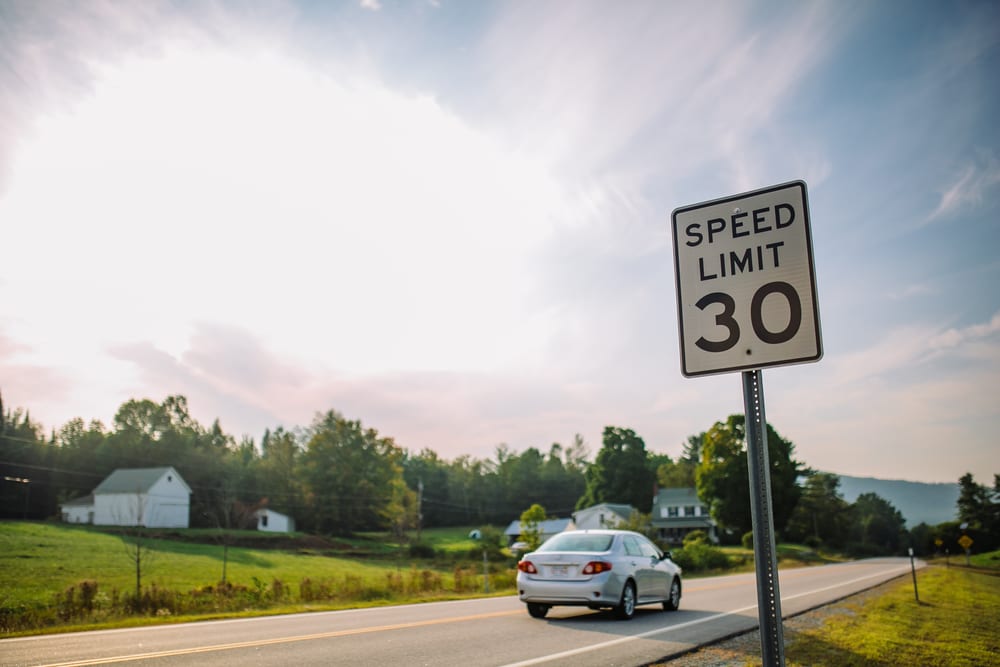

Following is an overview of the laws, limits, and fines as they relate to speeding traffic violations in the state of Connecticut.
Speed limits in Connecticut
65 mph: rural interstate highways, as posted
65 mph: urban freeways, as posted (some may be as low as 45 mph in areas)
55 mph: rural divided roads
55 mph: rural undivided roads, as posted (as low as 45 mph in some areas)
20-40 mph: residential areas, as posted
Municipalities may change local speed laws, but they must gain the State Traffic Commission’s approval to do so.
Connecticut code on reasonable and prudent speed
Maximum speed law:
According to section 14-218a of Connecticut vehicle code, “No person shall drive a motor vehicle at a rate of speed greater than is reasonable, having regard to the width, traffic and use of highway, road or parking area, the intersection of streets and weather conditions.”
Minimum speed law:
According to section 14-220 of Connecticut vehicle code, “No person shall operate a motor vehicle at such a slow speed as to impede or block the normal and reasonable movement of traffic.”
Minimum posted speed on limited access divided highways is 40 mph.
Due to variations in speedometer calibration, tire size, and margins of error in speed detecting technology, it’s uncommon for an officer to pull a driver over for going less than five miles above the speed limit. However, technically any amount over can be considered a speed violation so best practices are to stay within the limit.
Connecticut has a mix of absolute and prima facie rules (meaning that an offense may be open to interpretation). As such, drivers may fight certain citations based on one of these three claims:
The driver may oppose the determination of speed. In order to claim this defense a driver must know how his or her speed was determined and then learn how to disprove its accuracy.
A driver may claim that an emergency situation caused the driver to break the speed limit in order to prevent injury or damage to themselves or others.
The driver may claim a case of mistaken identity. If a police officer clocks a driver speeding and subsequently has to find them again in traffic, it’s possible that they could make a mistake and pull the wrong car over.
Penalty for exceeding the speed limit in Connecticut
First-time violators may:
Be fined up to $50
Have their license suspended for up to 30 days
Penalty for reckless driving in Connecticut
In this state, driving 20 mph or more over the speed limit is automatically considered reckless driving.
First-time violators may:
Be fined between $100 and $300
Be sentenced to between 30 and 90 days of jail time
Have their license suspended for between 30 and 90 days
Speeding fines vary among locations. It’s important to remember that there are typically other fees in addition to the fine itself – depending upon the amount a driver goes over the limit, the total cost of a ticket may exceed $200.



